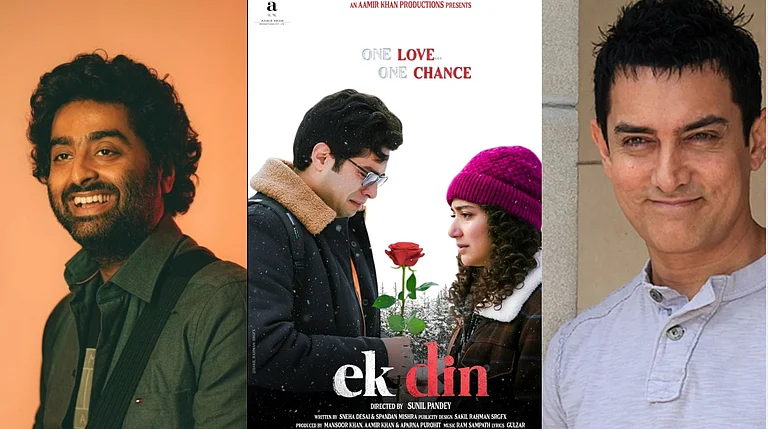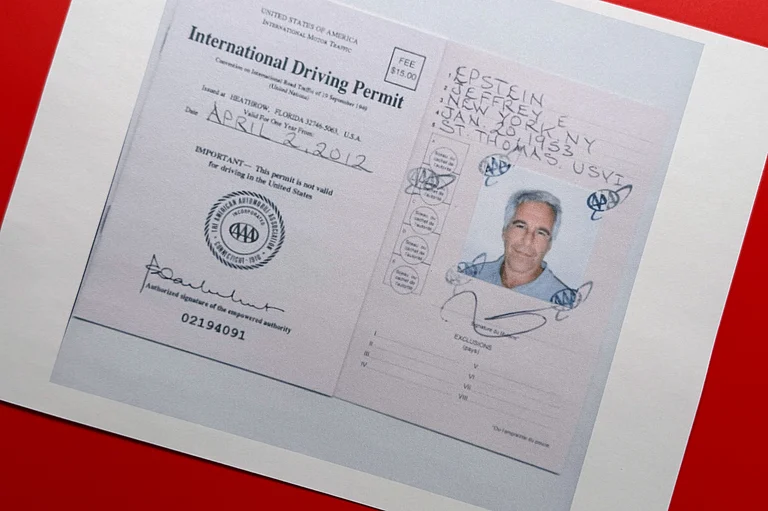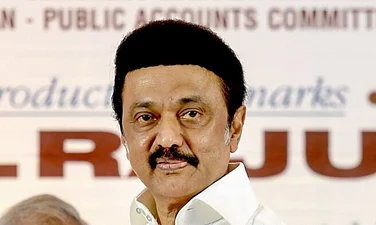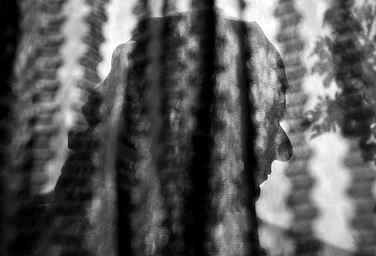Officials in the Department of Jammu and Kashmir seldom take their eyes of the map of the state these days. When not perusing the plethora of reports which keep pouring in about the situation in the Kashmir Valley, they are busy identifying "easy areas" for security forces if elections are held in the state. They have been informed that there are plans to hold polls some time around the middle of December, almost a month before the current term of Central rule is due to expire.
"We are quite confident that there will be no trouble at all in the Ladakh region," says one official. He is also sure of a reasonable turnout in the Jammu region. But he is not complacent either. "We are quite aware that the militants will go all out to try and disrupt the polls. Their strike capability in Doda, particularly, is great. We are making solid preparations," he says.
The preparations include a very heavy deployment of paramilitary forces all over the state, with the obvious concentration in the valley. As per the current estimate, the Centre will deploy 500 companies of paramilitary forces (roughly 50,000 persons). The Cabinet has already taken a decision to make a special law providing that elections in any constituency of the state will not be countermanded if an independent candidate dies. It is also contemplating reducing the campaign period from the usual three weeks to about 10 days. The Election Commission has been advised to try and conduct the poll in three or four phrases.
However, the Government is also counting on other factors for smooth elections. The border areas of Tangdhar, Tregam, Keran, Tsuntwar and Gurez, dominated mostly by the Gujjars and Bakarwals who are ethnically different from the Kashmiri Muslims, may not pose a major problem. As a result, there could also be a fair turnout of voters in these areas. In places like Bandipora, Kungan and Gaindarbal, where the Ikhwan-ul-Muslimoon led by Kukka Parray has emerged as the major militant force, the secessionists may not
succeed in scaring away the voters either. Kukka Parray told Outlook that unlike the organisations affiliated to the Hurriyat Conference, his group would not give a poll boycott call. "Why should we impose our views on them. If the people want to come out and vote, they should be free to do so," he said. The man, who is accused by Hurriyat leaders of working in tandem with the security agencies, however, was non-committal about his own participation. The Government is hoping that other renegade militant groups will also similarly soften their stands.
What is still worrying the Centre is the attitude of Farooq Abdullah and the National Conference. Abdullah is categorical that he will not participate in the polls without the Centre announcing a political package which restores the level of the state's autonomy to the pre - 1953 status. In the absence of Abdullah, all political hopes are bound to rest on Ghulam Rasool Kar, the state Congress chief, who is already being referred to as Kashmir's Beant Singh in Congress circles. The star campaigner, however, remains Governor K.V. Krishna Rao who has been touring the state extensively.
As far as the Hurriyat leaders are concerned they reiterate that they will not participate in the polls. "Let them go ahead and hold elections at the point of a gun. Will it make any difference? Instead of Krishna Rao, there will be an Abdullah or a Kar in the saddle and encircled by the Indian Army. The feeling will be that he has built his castle over the graves of 40,000 Kashmiri martyrs," says A.G. Lone, leader of the People's Conference. "You can be sure there will be a lot of violence," he warns.
It is the spectre of violence which worries Delhi most. According to estimates, over 1,800 militants have crossed into the Valley. About 50 per cent of them are Afghans. And officials anticipate trouble once the polls are announced— an unleashing of firepower as never before .
Whether or not elections can contribute substantially towards a solution to the Kashmir problem remains a debatable question. But it is clear that if the Government finally does decide to go ahead with its election plans, the Valley may witness violence on a much larger scale than it has in recent times.


























